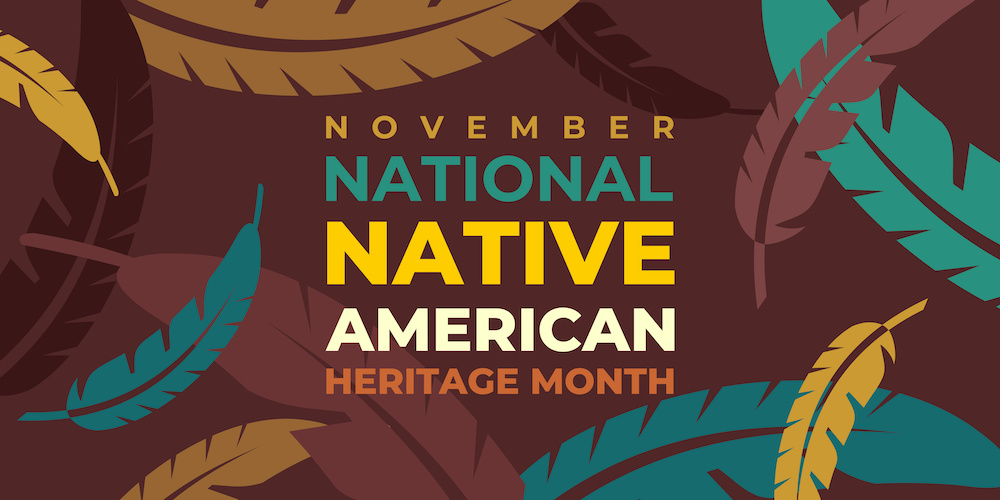
- Details
- By Native News Online Staff
Nov. 1 kicks off Native American Heritage Month. The month is an opportunity to spread awareness of Indigenous history and contemporary Native issues and to highlight Native Americans who enrich our culture.
National Native American Heritage Month, as it is officially called, is the culmination of a centuries-long effort to establish recognition for the substantial contributions of Indigenous peoples.
Dr. Arthur Caswell Parker, a Cattaraugus Seneca Indian, historian, anthropologist, and author from New York state, was an early proponent of establishing a day to honor Native Americans. Parker founded several impactful American Indian rights organizations, such as the Society of American Indians in 1911 and the National Congress of American Indians in 1944 — and advocated for American Indians to be given U.S. citizenship. Parker persuaded the Boy Scouts of America to designate a day to celebrate the “First Americans” from 1912-1915.
In 1914, Native rights advocate Reverend Red Fox James, a Blackfoot Tribe citizen, embarked on a 4,000-mile trek on horseback to Washington, D.C., to petition the president for an “Indian Day.” He presented the endorsements of 24 governors to the White House, and again in 1919, he petitioned the state of Washington to designate the fourth Saturday in September as an “Indian holiday.”
Calvin Coolidge issued a proclamation on Sept. 28, 1915 that declared the second Saturday of each May as an American Indian Day and contained the first formal appeal to recognize Indians as citizens.
Decades later, in 1976, Jerry C. Elliott (Osage-Cherokee) — one of the first Native Americans to work at NASA — authored the Congressional legislation for the first Native American Awareness Week, Oct. 10-16.
In 1990, President George H.W. Bush signed a joint congressional resolution designating the month of November “National American Indian Heritage Month.” Proclamations have been issued each year since 1994.
On Monday, the White House released President Joe Biden’s National Native American Heritage Month Proclamation.
In part, the proclamation reads, “America has not always delivered on its promise of equal dignity and respect for Native Americans ... But despite this painful history, Indigenous peoples, their governments, and their communities have persevered and flourished. As teachers and scholars, scientists and doctors, writers and artists, business leaders and elected officials, heroes in uniform, and so much more, they have made immeasurable contributions to our country’s progress.”
More Stories Like This
Native News Weekly (August 25, 2024): D.C. BriefsUS Presidents in Their Own Words Concerning American Indians
Native News Weekly (December 14, 2025): D.C. Briefs
Wounded Knee Massacre Site Protection Bill Passes Congress
Two Murdered on Colville Indian Reservation
Help us defend tribal sovereignty.
At Native News Online, our mission is rooted in telling the stories that strengthen sovereignty and uplift Indigenous voices — not just at year’s end, but every single day.
Because of your generosity last year, we were able to keep our reporters on the ground in tribal communities, at national gatherings and in the halls of Congress — covering the issues that matter most to Indian Country: sovereignty, culture, education, health and economic opportunity.
That support sustained us through a tough year in 2025. Now, as we look to the year ahead, we need your help right now to ensure warrior journalism remains strong — reporting that defends tribal sovereignty, amplifies Native truth, and holds power accountable.
 The stakes couldn't be higher. Your support keeps Native voices heard, Native stories told and Native sovereignty defended.
The stakes couldn't be higher. Your support keeps Native voices heard, Native stories told and Native sovereignty defended.
Stand with Warrior Journalism today.
Levi Rickert (Potawatomi), Editor & Publisher


